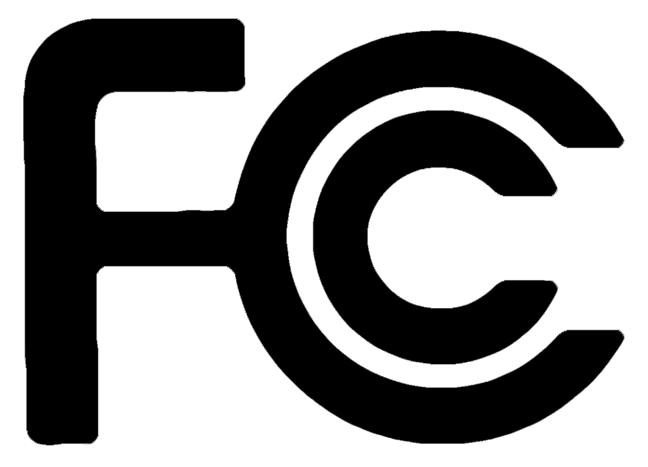PUBLIC NOTICE

Federal Communications Commission
News Media Information 202 / 418-0500
445 12th St., S.W.
Internet: http://www.fcc.gov
Washington, D.C. 20554
TTY: 1-888-835-5322
DA 12-347
March 6, 2012
Enforcement Advisory No. 2012-02
FCC ENFORCEMENT ADVISORY
CELL JAMMERS, GPS JAMMERS, and OTHER JAMMING DEVICES
CONSUMER ALERT: Using or Importing Jammers is Illegal
Monetary Penalties Can Exceed $100,000 per violation
In recent days, there have been various press reports about commuters using cell phone jammers to create a “quiet zone” on buses or trains. We caution consumers that it is against the law to use a cell or GPS jammer or any other
type of device that blocks, jams or interferes with authorized communications, as well as to import, advertise, sell, or ship such a device. The FCC Enforcement Bureau has a zero tolerance policy in this area and will take aggressive
action against violators.
***CONSUMER ALERT***
Illegal to Operate Jammers in the U.S.
Unless you are an authorized federal government
user, you may not operate a jammer in the U.S., even on private property. This means that it is illegal to use a jammer on mass transit (e.g., train, bus) or in a residence, vehicle, school, theater, restaurant or in any other public or private place.
Illegal to Import Jammers into the U.S.
If you purchase a jammer online and ship it to the U.S., you have violated federal law. When you buy jammers from outside the U.S.—used or new —you become the “importer” of an illegal device. It does not matter whether you purchased the device from an established business or an individual selling the jammer in an online auction. Jammers imported from overseas are also subject to seizure at the border.
Illegal to Sell or Advertise Jammers Online or in Stores.
You may not sell or advertise jammers to individuals or businesses on online auction or marketplace sites, in retail stores, or even at your local flea market. Selling even a single jammer is illegal. You also are prohibited from shipping a jammer in the U.S.
Monetary Penalties Can Exceed $100,000 per violation.
Violations of the jamming prohibition can lead to substantial monetary penalties (up to $112,500 for any single act), seizure of the illegal jammer, and criminal sanctions including imprisonment.
If you are aware of the use of a jammer, please contact the FCC at 1-888-CALL-FCC or jammerinfo@fcc.gov.
Page 1 of 2
What are “jammers”?
Generally, “jammers”—which include devices commonly called signal blockers, GPS jammers, cell phone jammers, text blockers, etc.—are illegal radio frequency transmitters that are designed to block, jam, or otherwise interfere with authorized radio communications.
How do jammers work?
A jammer can block all radio communications on any device that operates on radio frequencies within its range (i.e., within a certain radius of the jammer) by emitting radio frequency waves that prevent the targeted device from establishing or maintaining a connection. Jamming technology generally does not discriminate between desirable and undesirable communications. For example, jammers can:
prevent your cell phone from making or receiving calls, text messages, and emails;
prevent your Wi-Fi enabled device from connecting to the Internet;
prevent your GPS unit from receiving correct positioning signals; and
prevent a first responder from locating you in an emergency.
Why are jammers prohibited?
Jammers do not just weed out noisy or annoying conversations and disable unwanted GPS tracking. Jammers can prevent 9-1-1 and other emergency phone calls from getting through or interfere with police and other law enforcement communications. For example, the recent use of a cell phone jammer in an office building disrupted communications of a nearby Fire Department. When Enforcement Bureau agents investigated the incident, we found that a CPA who apparently did not want to be disturbed during the busy tax season was using a small, inexpensive cell jammer inside his office. But, the jammer was disrupting critical public safety communications outside his building as well. In another recent instance, a high school teacher used a jammer in his classroom. Responding to a complaint, Enforcement Bureau agents tracked the device to a locked cabinet in the metal shop. Unknown to the teacher, the jammer was blocking all teachers, students, and staff throughout the school from making any calls, including emergency calls, and it could have had tragic consequences.
Need more information?
For additional information regarding enforcement of the jamming prohibition, visit www.fcc.gov/eb/jammerenforcement or contact Daudeline Meme, Kevin Pittman or Neal McNeil of the Enforcement Bureau at (202) 418-1160 or jammerinfo@fcc.gov. To file a complaint, visit www.fcc.gov/complaints or call 1-888-CALL-FCC.
Frequently asked questions about cell, GPS, and Wi-Fi jammers are available at http://www.fcc.gov/encyclopedia/jammer-enforcement. Media inquiries should be directed to Neil Grace at (202) 418-0506 or neil.grace@fcc.gov or to Karen Onyeije at (202)
418-1757 or karen.onyeije@fcc.gov.
To request materials in accessible formats for people with disabilities (Braille, large print, electronic files, audio format), send an e-mail to fcc504@fcc.gov or call the Consumer & Governmental Affairs Bureau at (202) 418-0530 (voice), (202) 418-0432 (TTY). You may also contact the Enforcement Bureau on its TTY line at (202) 418-1148 for further information about this Enforcement Advisory, or the FCC on its TTY line at 1-888-TELL-FCC (1-888-835-5322) for further information about the jamming prohibition.
Issued by: Chief, Enforcement Bureau
Source: FCC